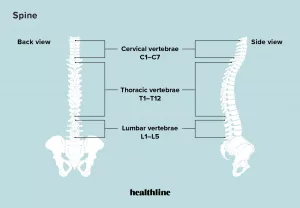You ever hear someone downplay neck pain? Like, “It’s just a stiff neck, right? Just sleep it off!” or that infamous “It’ll go away if you ignore it long enough.” Let me tell you, that’s about as real as unicorns running down Main Street. Neck pain from a pinched nerve? That’s no small thing. It can turn the most basic things—sitting, holding a cup, even breathing sometimes—into giant, stubborn hurdles.
If you’re reading this, odds are you or someone you love is stuck dealing with this. Or maybe you’re worried, confused, or just plain frustrated thinking about “disability for pinched nerve in neck,” wondering if there’s real help out there… or if anyone will ever believe that your pain is as bad as it feels. Hey, breathe—let’s walk through this, side by side. I want you to really get what’s going on and what’s possible for you—because knowledge is power, and you deserve all the help you can get. Ready?
So, What’s a Pinched Nerve in the Neck Anyway (and Why Should You Care)?
Picture this: inside your neck, you’ve got nerves like delicate, electrical wires. They’re supposed to send messages between your brain and the rest of your body—kind of like your personal Wi-Fi. But when a bone or disc in your spine decides to squish or “pinch” one of those nerves, that’s when the trouble starts. It’s pain, sure. But it’s also tingling, numbness, weird weakness, maybe even a burning feeling that just won’t quit. Not just in your neck, but sometimes shooting down your arms or hands too.
Wondering how it happens? Honestly, life can get a little wild. Sometimes it’s wear and tear—hello, age! Other times, it’s an old sports injury flaring up again, or maybe you just turned your head too fast. And, yeah, work doesn’t always help either. If you “hurt my back at work,” or “fell at work and hurt my back,” that could easily start a cascade of trouble that leads right up your spine. (And if that rings a bell, don’t worry, we’re going to talk about what you should do in just a bit.)
Six Common Culprits Behind Pinched Nerves
| Cause | How It Happens |
|---|---|
| Degenerative Disc Disease | Discs wear down, shrinking the space between vertebrae. |
| Herniated Disc | Disc “slips” out of place, pressing on a nerve. |
| Bone Spurs | Extra bone growth pinches a nerve—ouch. |
| Spinal Stenosis | Space inside the spine narrows, nerves get squeezed. |
| Injury/Trauma | Falls, accidents, or sudden twists can trigger nerve pain. |
| Repetitive Strain | Heavy lifting or repeating movements at work. |
Honestly, if you’re dealing with any of these—and especially if work is a trigger—don’t just shrug it off. Symptoms can sneak up slowly, or hit you all at once. Either way, it’s a good time to listen to your body.
How Does It Actually Mess With Your Life?
I’m not a doctor, but I’ve been in rooms where the pain was so thick, you could almost taste the frustration. One friend of mine—real outdoorsy, always hiking—developed a pinched nerve, and couldn’t even button his shirt for weeks. The pain? Relentless. But the worst part was feeling invisible, like no one “got it.” If that’s you, you’re not alone. Losing sleep, dropping things, snapping at family because it hurts just to exist? Sadly, super common.
If you’re reading this and nodding along, it’s probably time to talk to a doctor, tell them exactly how bad things get, and get it documented. Which brings us right to the next big question: what are your rights, and can you actually get disability for pinched nerve in neck?
Can You Get Disability for a Pinched Nerve in Your Neck?
This is the question, right? And the answer… well, it’s not a straight “yes” or “no”—it’s a “maybe, and here’s how to know.” Disability law isn’t about what’s technically wrong with you. It’s about how what’s wrong with you stops you from living or working like you used to.
Getting disability benefits for a pinched nerve in your neck mostly comes down to:
- Proving you have a real diagnosis (no, “my neck hurts” isn’t enough for the SSA or insurance folks).
- Showing that your pain or weakness truly limits what you can do—especially at work.
- Providing clear medical evidence: doctor’s notes, MRI results, treatment history (and yeah, you need a paper trail).
Who Decides If You Qualify?
Depending on your situation, you might seek help in three big areas:
- Social Security Disability (SSDI): For when you can’t work, period, because of your nerve injury.
- Workers’ Compensation: If you hurt your back at work, or “fell at work and hurt my back,” this should cover treatment, lost wages, maybe even retraining.
- Private Insurance: Some workplaces offer disability plans—make sure you check the fine print.
Honestly, a lot of people don’t even realize that spinal issues like a pinched nerve or spinal stenosis (for those wondering “what benefits can I claim with spinal stenosis?”) can qualify if symptoms are severe enough. Each program is a little different, but they all want proof—so get those appointments, those scans, and keep a pain diary if you have to.
But How Do You Really Prove Pain?
Tough one, right? After all, there’s no “pain thermometer.” Here’s what they’re looking for:
- Can you lift or carry things like you used to? What about typing, driving, walking?
- Has your doctor documented loss of strength, reflex changes, tingling, or numbness?
- Are treatments (like PT, meds, injections) helping? Or is nothing working?
- Do you have trouble with tasks at home—like getting dressed, opening jars?
In disability cases, especially when you’re thinking about “how much disability will I get for shoulder injury” (because, let’s be honest, these body parts are all connected), showing how severely you’re limited matters more than a perfect medical label.
From “Ouch” to Action: Steps to Take If You’re Injured (Especially at Work)
Let’s cut straight to it. If you injured your back or neck at work, or even if you only notice after you clock out, here’s what to do—and yes, please do it right away:
- Tell your employer: Don’t wait. Report it, even if you think it’s “not a big deal.”
- Write everything down: Date, time, how it happened, symptoms.
- Get checked out by a doctor ASAP: Not just the “company doc”—get your own professional’s opinion if you can.
- Don’t downplay your pain or limitations: If you can’t move your arm, say it. If you’re dropping things, say it. The details matter.
And if your boss gives you a hard time? Or someone says you’re just after “easy money”—don’t let shame talk you out of the help you deserve. Take care of yourself. That’s job one.
The Disability Application Process: What’s It Really Like?
Okay. This is where things can get a little… overwhelming. It’s a process, not a quick fix. Here’s the broad overview, so you know what you’re in for:
- Gather every scrap of evidence—doctor’s notes, test results, prescription lists, accident reports.
- File your claim (SSA for long-term federal disability, state agency or insurance carrier for workplace injuries).
- Be ready for paperwork. A lot of it. Sometimes interviews, sometimes exams with doctors you’ve never met.
- If you’re denied the first time? Don’t panic—many, many good people are. There are appeals. And yes, it’s okay, even smart, to ask an attorney for help (hello “workplace injury lawsuit”).
And hey, if you ever feel lost in the paperwork jungle, remember: you’re not alone. There are legal pros who live for this stuff, and it’s perfectly okay to lean on them.
Legal Advice: When Do You Need a Lawyer?
Look, not every claim needs a courtroom showdown. But if your claim is denied, or your employer pushes back hard, or you think you’re getting shortchanged… don’t be shy about reaching out to a lawyer who knows their way around disability or worker’s comp law. A good one can help you untangle the real from the bluff, and sometimes just their official letterhead is enough to get things moving. Trust your instincts—if something feels off, chase it down.
BALANCING BENEFITS AND RISKS: IS FILING WORTH IT?
Let’s get real for a minute. Chasing disability for pinched nerve in neck is not a walk in the park. You’re putting your medical history out there. You might be off work for a while, maybe for good. You might have people (even family) questioning you, or you might lose some independence.
But the flip side? You get support. You get breathing room—financially and emotionally. Treatments, peace of mind, a path for moving forward. Many folks worry that once they file, there’s “no going back”—but honestly, your health is worth standing up for.
And you have more choices than you think:
- Physical therapy, pain clinics, sometimes vocational rehab (to help you find work that fits your new normal).
- Talking things out, whether with a counselor, a friend, or an online group. This path can get lonely.
- Small steps to adapt: ergonomic tools, ice/heat routines, stretching—life hacks from fellow pain-warriors really do help.
If you’re feeling stuck, unsure if you should pursue “disability for pinched nerve in neck” or just tough it out, pause and ask: What will life look like a year from now if things don’t change? And what could it look like with the right support?
Some people worry about talking to a lawyer, thinking it signals things are about to get ugly. But getting legal help doesn’t make you greedy; it makes you smart. Honestly, sometimes just having a pro read your paperwork or explain what “injured back at work” (or “workplace injury lawsuit”) really means for your state is worth it. Even studies, according to this study on chronic neck pain outcomes, show that support, early intervention, and honest conversation improve recovery rates. There’s nothing wrong with being your own advocate.
But What If You Don’t Want to Give Up Work?
That’s a huge question. If you love your job and just can’t picture a life on the sidelines, know that disability doesn’t have to be forever. Many claims are short-term, or include vocational help so you can retrain or find different work. It’s about finding what’s right for you.
And if paperwork, doctors, or even talking about pain makes you want to crawl under a rock? Deep breaths. Take it one phone call at a time, one day at a time. You’ve already survived a lot—keep going.
One Last Thing: You Matter. And You’re Not Alone.
Here’s my final thought, friend to friend: living with a pinched nerve in your neck can make the world feel like it’s closing in. But it’s not the end. There’s real help—legal, medical, emotional—out there for you.
Disability benefits exist because enough people before you spoke up and asked for help. If you’re hurting, if life feels impossible, don’t give up on support that can genuinely carry you through. Reach out, document your pain, and don’t let anyone tell you it’s “all in your head.” Your pain is real. Your experience matters.
Still have questions about “disability for pinched nerve in neck,” or the maze of paperwork, or just want someone to listen? Drop a comment or reach out—seriously, no question is too small, and every story matters. Stay strong, and remember: your health, your future—they’re worth fighting for. So, what do you think? Would you like to share your story or ask anything else?

























Leave a Reply
You must be logged in to post a comment.